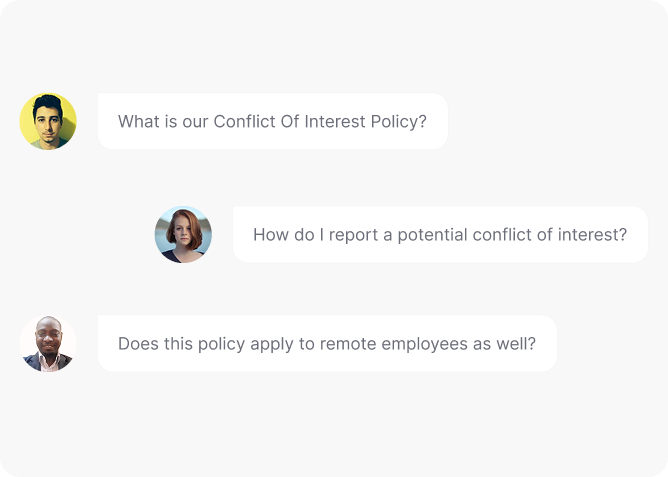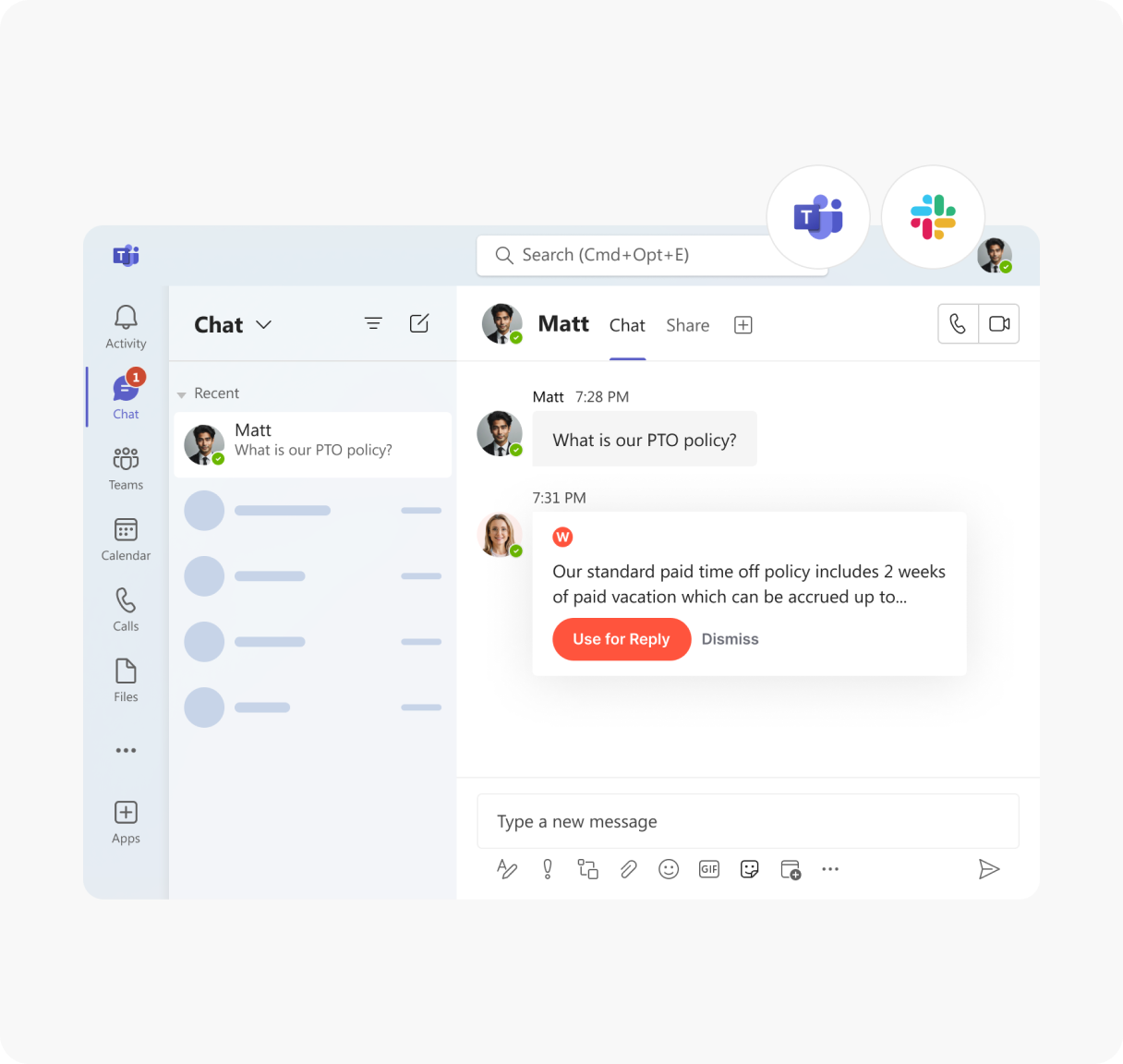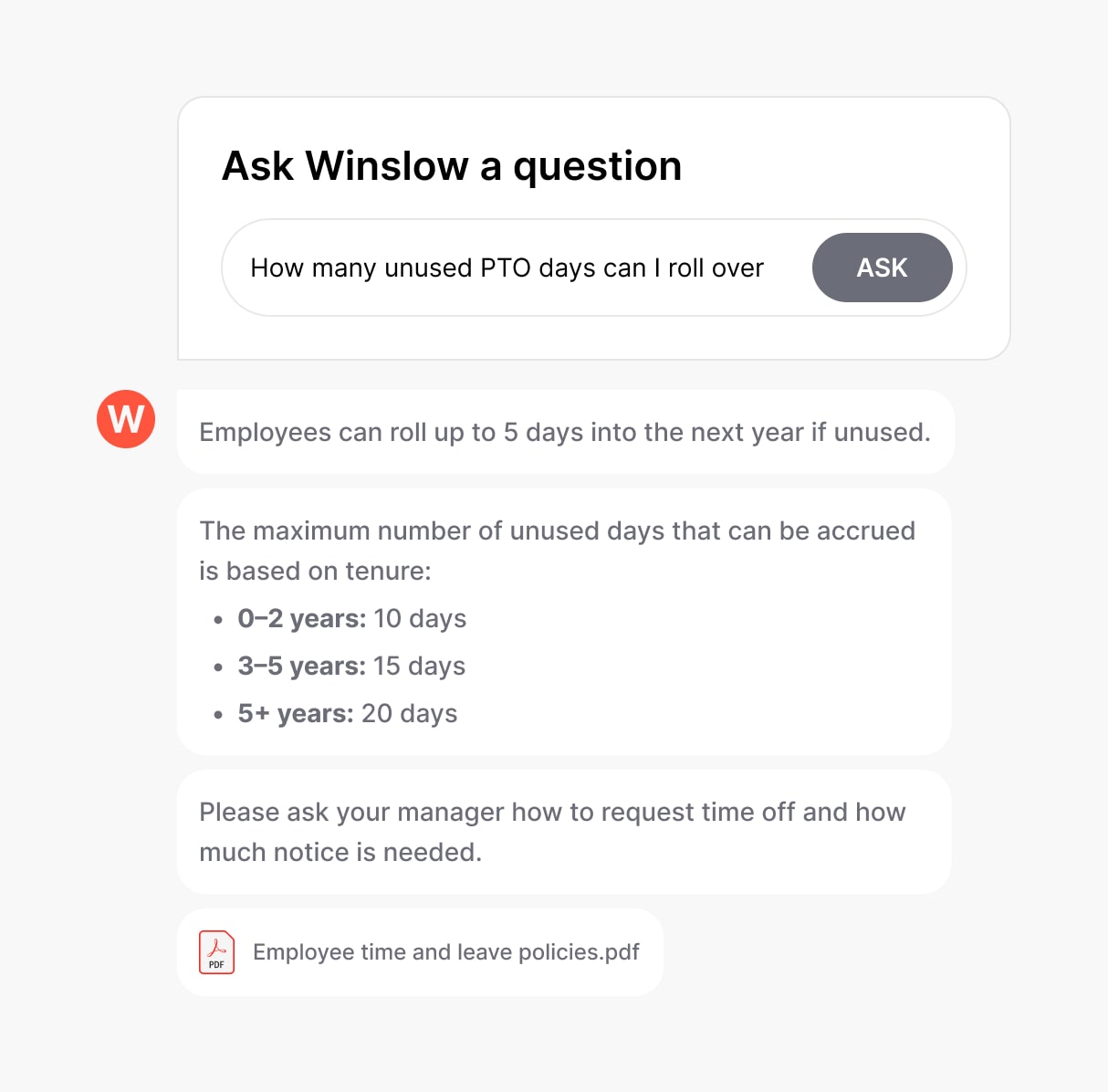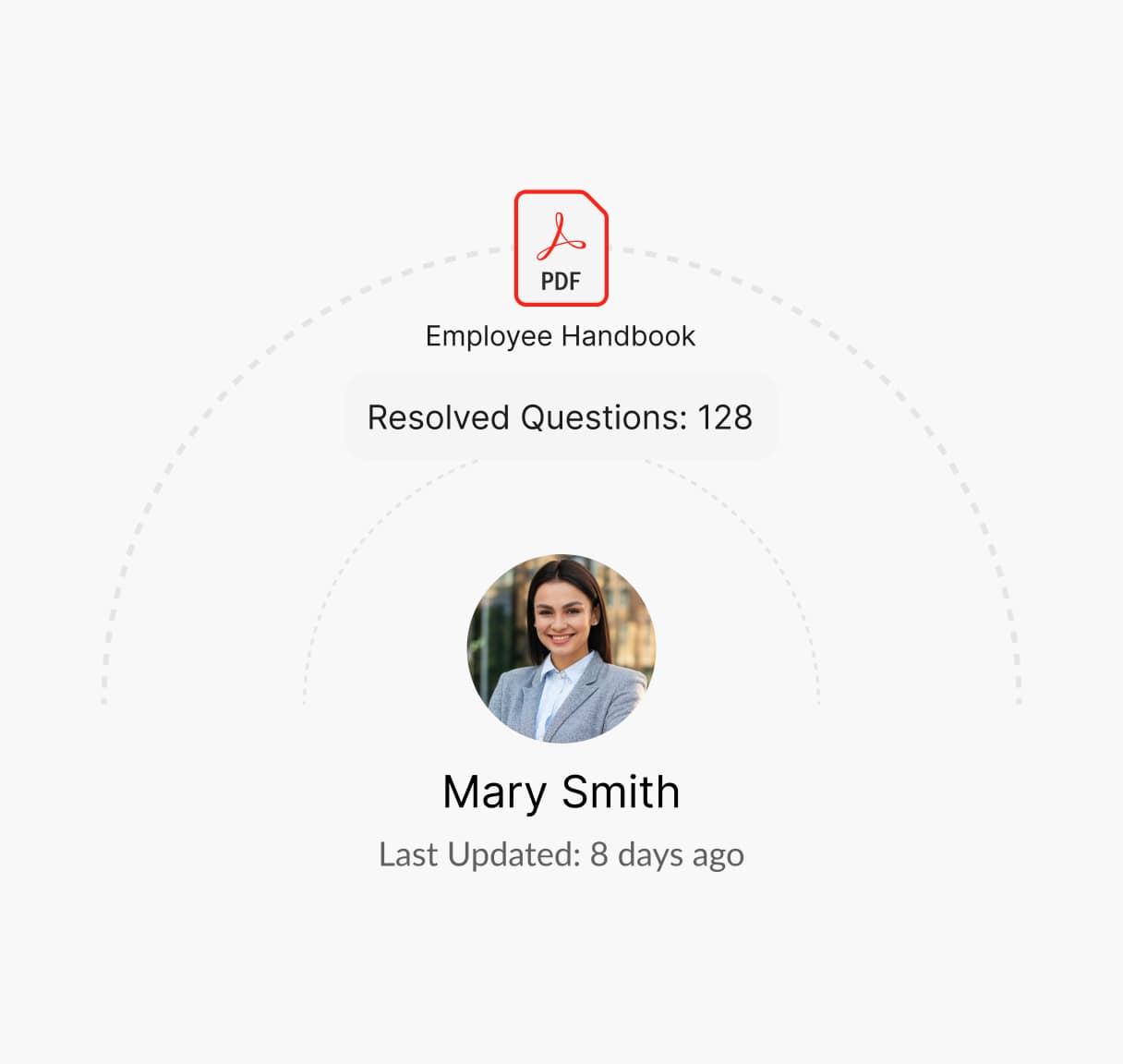Everything You Need to Know About Conflict Of Interest Policy
Maintaining ethical business practices requires transparency. A Conflict of Interest Policy outlines situations that may compromise impartiality and provides guidelines for disclosure and resolution, protecting organizational integrity.

What is a Conflict Of Interest Policy?
A Conflict of Interest Policy is an HR document that defines situations where personal interests could interfere with professional responsibilities. It outlines disclosure requirements, prohibited activities, and consequences for violations.
A clear conflict of interest policy safeguards company integrity and ensures employees make decisions in the organization’s best interest.
Guidelines for Creating a Conflict Of Interest Policy
A strong conflict of interest policy ensures transparency and prevents ethical dilemmas in the workplace.
Define Conflicts of Interest
Clearly explain situations that constitute a conflict, such as personal or financial interests affecting job duties.
Establish Disclosure Requirements
Require employees to report any potential conflicts before they impact decision-making.
Set Reporting and Resolution Procedures
Outline steps for employees to report conflicts and how management will address them.
Enforce Ethical Standards
Align policy with company values and industry regulations to maintain integrity.
Implement Preventative Measures
Encourage proactive disclosure and regular training on ethical workplace behavior.
Ensure Confidentiality in Reporting
Protect employees who disclose conflicts to encourage compliance.
What is Covered in a Conflict Of Interest Policy?
An effective Conflict Of Interest Policy should include the following:
Types of Conflicts
Define different categories, such as financial, familial, and external business relationships.
Disclosure Requirements
Specify when and how employees should report conflicts.
Reporting and Investigation Process
Detail the steps HR or management will take to assess and resolve reported conflicts.
Employee Responsibilities
Clarify employees’ duty to avoid conflicts and report them when they arise.
Impact on Decision-Making
Explain how conflicts may affect hiring, vendor selection, or financial dealings.
Penalties for Non-Compliance
Define consequences for failing to disclose conflicts, ensuring accountability.
Ethics Training and Awareness
Include initiatives to educate employees about workplace integrity.
Need help creating a Conflict Of Interest Policy?
How Winslow helps HR pros save time on responding to conflict of interest policy questions
Managing conflict of interest inquiries can be time-consuming, but Winslow, your AI-powered HR assistant, simplifies the process:

Instant answers anytime
Winslow ensures your Conflict of Interest Policy is always available on Slack, Teams, or email. Employees can instantly access guidelines on disclosing conflicts, handling outside employment, and ethical decision-making.
Personalized Support
Winslow instantly answers employee questions, including those about your Conflict of Interest Policy, ensuring clarity on financial interests, gift acceptance, and family business affiliations.


Analytics and Insights
Winslow tracks policy-related queries, helping HR teams identify trends and common concerns. This data enables organizations to refine their policy, improve reporting channels, and address recurring issues proactively.
Save Time Managing Conflict of Interest Policies with Winslow
Ensuring ethical decision-making requires clear guidelines, but handling employee questions can be time-consuming. Winslow delivers instant, accurate responses to inquiries about disclosures, outside employment, and financial interests—so HR can focus on maintaining transparency and compliance.
Frequently asked questions
Have further questions about Winslow, contact us at sales@usewinslow.com
How should HR teams define conflicts of interest clearly without discouraging external engagements?
HR should provide clear definitions and real-world examples of conflicts, such as financial interests in competitor businesses or personal relationships affecting hiring decisions. Instead of outright restricting external engagements, HR can implement an approval process where employees disclose potential conflicts for review. This allows the company to assess risks while maintaining fairness.
What steps should HR take to manage conflicts that arise unexpectedly?
HR should establish a mandatory disclosure process where employees report conflicts as soon as they arise. A review committee can assess the situation based on predetermined guidelines and determine an appropriate resolution, such as reassigning responsibilities or requiring divestment from conflicting interests. A clear, confidential escalation path should also be available to employees who suspect undisclosed conflicts.
How can HR ensure leadership and employees adhere to conflict of interest policies consistently?
Regular training sessions should be held, with case studies illustrating both subtle and overt conflicts. HR should require annual disclosure forms where employees confirm compliance. Leadership accountability is key—executives should undergo stricter evaluations and be transparent about their external affiliations. An anonymous reporting system should also be in place for employees to flag concerns without fear of retaliation.
Should HR differentiate conflict of interest policies for different levels of employees?
Yes, because senior employees and executives have more decision-making power and access to sensitive information. While general employees should follow standard conflict reporting procedures, senior roles may require additional disclosure requirements and quarterly reviews of their affiliations, particularly in procurement, hiring, and strategic partnerships.
What corrective actions should HR take for violations without harming employee morale?
HR should implement tiered disciplinary actions, starting with counseling and education for minor infractions and escalating to role reassignment or termination for severe violations. Transparency in the resolution process helps reinforce fairness—HR should document decisions and communicate why actions were taken. Conducting ethics training post-violation can also rebuild trust.
Additional resources
Device Usage Policy
Managing employee leave effectively is vital for maintaining workforce productivity and compliance....
Learn moreconfidentiality policy
Protecting sensitive information is crucial. A clear Confidentiality Policy outlines guidelines for...
Learn moreclaim reimbursement
Ensuring fair compensation for expenses is key. A clear Claim Reimbursement Policy...
Learn more




